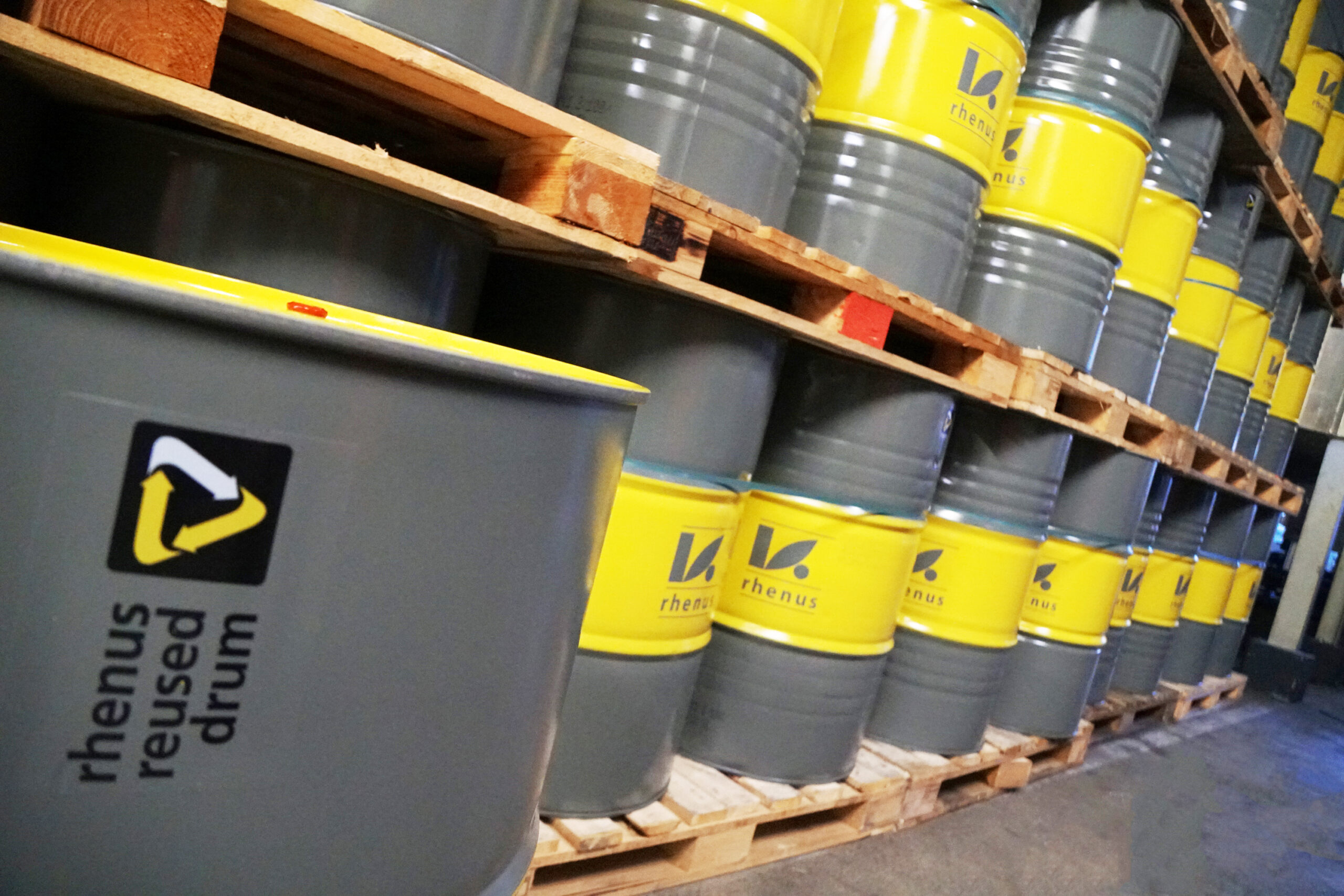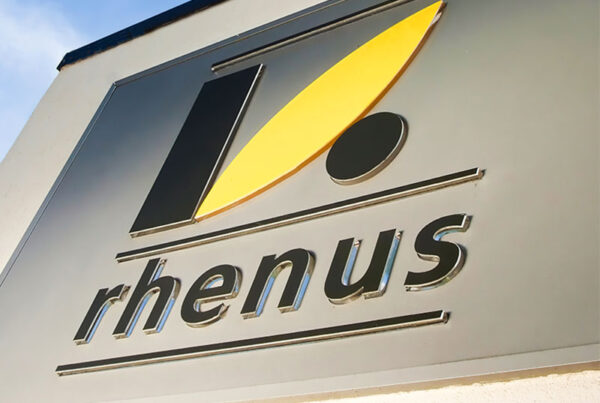Sustainable packaging: when it comes to recycling, smart packaging is half the battle
Reading time: 6 Min. | 01.12.2023
We’ve been striving for greater sustainability for many years. Our activities span the entire value chain – from sustainable raw materials to production processes and products that are as environmentally friendly as possible, as well as sustainable packaging. In this interview, Dr Michael Bartsch, Head of Procurement at Rhenus Lub, explains key aspects of these sustainability efforts and what new packaging we will offer in the future.
What factors does Rhenus Lub bear in mind when it comes to sustainable packaging?
In principle, industrial packaging must meet stringent demands. It is intended to safely protect sensitive products, to meet customer specifications and, wherever possible, to be cost-effective and environmentally friendly as well. Depending on the requirements, we use two different approaches – or, rather, two different materials.
Metalworking fluids are a consumable product that our customers use in ongoing production processes. Given that these fluids are usually needed in large quantities, we generally use steel drums or plastic “intermediate bulk containers” (IBCs) with a volume of 1,000 litres for such applications.
Lubricating greases are generally used in smaller quantities because they remain permanently in or on products such as grease-lubricated antifriction bearings. Here, plastic packaging is generally used instead – and we’re actively pushing ahead with the use of recycled plastic materials, while steel drums and IBCs are already being used in reconditioned form today.
We are seeking to minimise our corporate carbon footprint (CCF) in both areas and working continuously to make our solutions even more environmentally friendly.
What exactly do these efforts look like when it comes to drums or steel vessels?
In the case of steel drums for metalworking fluids, we’ve been using reconditioned drums for some time. These drums can be reused up to 10 times and then recycled. After each use, they are washed, beaten out, painted and checked for leak-tightness by a specialist supplier – and can then be refilled. The advantage for you is that you save materials and costs, contributing to the circular economy and helping to protect the environment. Once the drums reach the end of their life cycle, they are recycled.
Since metalworking fluids can be classified as hazardous materials, reconditioned drums must meet stringent requirements. Accordingly, we only use those that comply with the UN standard.

What proportion do reconditioned drums make up at Rhenus Lub?
We use almost 40,000 drums each year. In the case of rhenus-branded products, this is the first year in which reconditioned packaging has accounted for over half of the drums we use – and we’re working hard to maximise that proportion.
To further reduce our company carbon footprint, we obtain our reconditioned drums exclusively within a 250-kilometre radius of Mönchengladbach. Given that they are produced and reconditioned in the region, and thanks to their reusability and subsequent recyclability, the drums contribute to a circular economy that is beneficial to us as a company, to our customers and, of course, to the environment in equal measure. If there is insufficient supply in the market, we buy any additional new drums we need within a radius of around 100 kilometres, thereby avoiding unnecessary transport distances and reducing CO2 emissions.
What about the recyclable containers made of recycled plastic materials? When are they going to be used?
The use of recycled plastic materials is a key step towards a more sustainable and more resource-efficient way of doing business. Their use in packaging production reduces demand for new plastic and therefore has a positive impact on resource consumption and the environment. They also help to reduce plastic waste.
We assume that containers made of partially recycled plastic materials will be available in the course of this year, and we plan to use them in different areas – for example, in the form of post-consumer recycled (PCR) containers for oils and greases. Recycled plastics are even suitable for large intermediate bulk containers.
Our current objective is to reach a proportion of over 30% recycled plastic material per packaging unit in order to significantly exceed the requirements of the EU Ecolabel.
We assume that the packaging we need, with the EU Ecolabel and UN label, will be commercially available and that we will be able to use it in the course of 2023. That would represent a key step forwards in terms of sustainability at Rhenus Lub.











